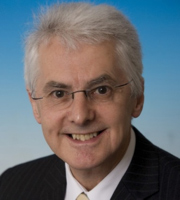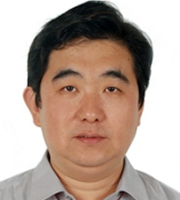Governance
Our Values
Through its members and its activities the ISIPT seeks to:-
- Encourage the advancement of IPT science and technology that aims to enhance the efficiency, safety and performance of industrial processes; reducing waste, carbon and environmental impact.
- Improve the understanding of IPT science and technology and its appropriate applications and potential consequences.
- Ensure equal and fair treatment of all without discrimination based upon race, religious belief, gender, disability or sexual orientation.
- Encourage professional development.
Through its publication processes and standards the ISIPT seeks to:-
- Facilitate the organisation of regular congresses, symposia and workshops to provide a platform for the presentation and publication of novel advances in the science, technology and applications of IPT.
Copyright in World Congress Proceedings and Publication of Extended Paper Versions
ISIPT retains Copyright of World Congress (WC) papers to prevent unauthorised and undesirable use.
As conference papers their content is likely to be novel but incomplete. ISIPT strongly encourages members to publish more complete versions of papers in appropriate journals of record. Such extended papers may typically include expanded description, results, and further in-depth analysis.
ISIPT grants Copyright to any named author for this purpose providing that an extended paper is distinct from the original World Congress paper and includes a clear declaration of the previous World Congress publication. Members are respectfully reminded of ISIPT and generally accepted rules on self-plagiarism (please see comments below).
Open Access and Institutional Repository Access
Our World Congress papers may be openly accessed by all members, and we have no cost for membership. Under local rules, some members may also be required to provide copies of published papers to institutional ‘open access’ repositories.
ISIPT grants permission for members to supply World Congress papers for which they are a named author to an institutional repository providing the paper format contains the full pagination, headers and footers of the original paper, clearly showing its publication origin. Members who wish to allow this form of access to their World Congress papers should refer their information systems colleagues to this website permission – no individual permission is needed or will be supplied.
Re-publication of previous work and malpractice in submissions for publication
Plagiarism in material submitted for publication to any ISIPT event is unacceptable. Plagiarism is defined generally as: “the use of someone else’s prior ideas, processes, results, or words without explicitly acknowledging the original author and source”. Where plagiarism is identified, and on investigation found to be intentional, this will be considered a serious breach of professional conduct; the paper will be disqualified, and the author(s) will be removed from ISIPT membership.
Members are also alerted to the increasing issue of ‘self-plagiarism’: the direct re-publication without significant further development of one’s own work. The ISIPT treats such submissions as plagiarism. However, newly submitted papers that feature earlier published work as background material with an explicit reference, which add significant science, technology review or experimental or application results, are acceptable and encouraged. Similarly the ISIPT supports the further significant extended development of novel work published from an ISIPT event and presented, with acknowledgement, to a further conference or journal of record.
Our Consultative Scientific Panel
Our Panel members provide occasional strategic advice and also monitor the quality of research in particular for papers submitted to ISIPT World Congress Events.
|
Prof. Dr. Ruzairi Abdul Rahim |
Universiti Teknologi Malaysia |
Malaysia |
|
Prof. Muthanna Al-Dahhan |
Missouri University of Science and Technology |
USA |
|
Prof. Laurent Babout |
Lodz University of Technology |
Poland |
|
Dr. André Bieberle |
Helmholtz-Zentrum Dresden-Rossendorf |
Germany |
|
Dr. Martina Bieberle |
Helmholtz-Zentrum Dresden-Rossendorf |
Germany |
|
Prof. Elisabetta Brunazzi |
University of Pisa |
Italy |
|
Prof. Zhang Cao |
Beihang University |
China |
|
Prof. Marco Jose da Silva |
Universidade Tecnologica Federal do Parana |
Brazil |
|
Prof. Feng Dong, |
Tianjin University |
China |
|
Prof. Uwe Hampel |
Helmholtz-Zentrum Dresden-Rossendorf |
Germany |
|
Prof Bjorn Tore Hjertaker |
University of Bergen |
Norway |
|
Prof. Brian S. Hoyle |
University of Leeds |
UK |
|
Prof. Kyung Youn Kim |
Jeju National University |
South Korea |
|
Dr. Jiabin Jia |
University of Edinburgh |
UK |
|
Prof. Geir Anton Johansen, |
University of Bergen |
Norway |
|
Prof. William Lionheart |
University of Manchester |
UK |
|
Prof. Oleg Lytvyn |
Ukrainian Engineering and Pedagogical Academy |
Ukraine |
|
Dr. Junita Mohamad-Saleh |
Universiti Sains |
Malaysia |
|
Prof. Jan D. Miller |
University of Utah |
USA |
|
Prof. Lihui Peng |
Tsinghua University |
China |
|
Prof. Anthony J Peyton |
University of Manchester |
UK |
|
Dr. Nick Polydorides |
University of Edinburgh |
UK |
|
Prof. Bill Randall |
University of Cape Town |
South Africa |
|
Dr. Thomas Rodgers |
University of Manchester |
UK |
|
Prof. Dominik Sankowski |
Lodz University of Technology |
Poland |
|
Prof. Manuch Soleimani |
University of Bath |
UK |
|
Prof. Mashiro Takei |
Chiba University |
Japan |
|
Dr. Chao Tan |
Tianjin University |
China |
|
Prof. Dominique Toye, |
Universiy of Liège |
Belgium |
|
Prof. Marko Vauhkonen |
University of Eastern Finland |
Finland |
|
Prof. Mi Wang |
University of Leeds |
UK |
|
Dr. Thomas Wondrak |
Helmholtz-Zentrum Dresden-Rossendorf |
Germany |
|
Dr. Paul Wright |
University of Manchester |
UK |
|
Dr. Yunjie Yang |
School of Engineering, University of Edinburgh |
UK |
|
Dr. Jiamin Ye |
Inst. of Eng. Thermophysics, Chinese Acad.of Sci. |
China |
|
Dr. Wuliang Yin |
Dept of Electrical and Electronic Engineering, University of Manchester |
UK |



